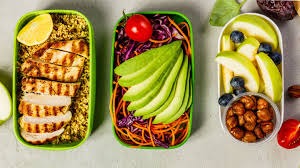
Attention Deficit Hyperactivity Disorder (ADHD) affects focus, impulse control, and energy levels, making daily tasks challenging. While medication and therapy are common treatments, research suggests that diet plays a significant role in managing ADHD symptoms. Experts emphasize that the right nutritional choices can improve concentration, reduce hyperactivity, and promote overall brain health.
Foods That Help Manage ADHD Symptoms
- Protein-Rich Foods – Eggs, lean meats, beans, and nuts help stabilize blood sugar levels and improve dopamine production, essential for focus and concentration.
- Omega-3 Fatty Acids – Found in fish, flaxseeds, and walnuts, omega-3s support brain function and reduce hyperactivity.
- Complex Carbohydrates – Whole grains, fruits, and vegetables provide sustained energy, preventing mood swings and inattention.
- Iron and Zinc-Rich Foods – Foods like spinach, lentils, pumpkin seeds, and red meat contribute to neurotransmitter balance, aiding cognitive function.
- Magnesium and Vitamin B6 – Bananas, avocados, and leafy greens help regulate mood and reduce restlessness.
Foods to Avoid for ADHD Management
- Refined Sugars – Excess sugar in candies, sodas, and processed foods can lead to energy crashes and worsen hyperactivity.
- Artificial Additives – Food dyes, preservatives, and artificial sweeteners found in packaged snacks can increase impulsivity and distractibility.
- High-Sodium Processed Foods – Chips, instant noodles, and fast food may contribute to mood instability.
- Caffeine and Energy Drinks – While some believe caffeine helps with focus, excessive consumption can lead to anxiety and sleep disturbances.
- Gluten and Dairy (For Sensitive Individuals) – Some children and adults with ADHD show improved symptoms when avoiding gluten and dairy, though this varies by individual.
--Advertisement--

 Share
Share



